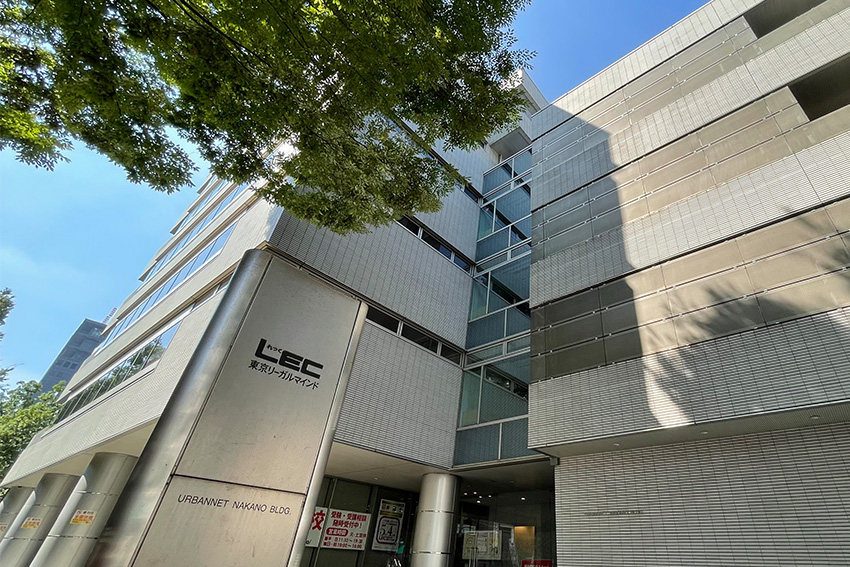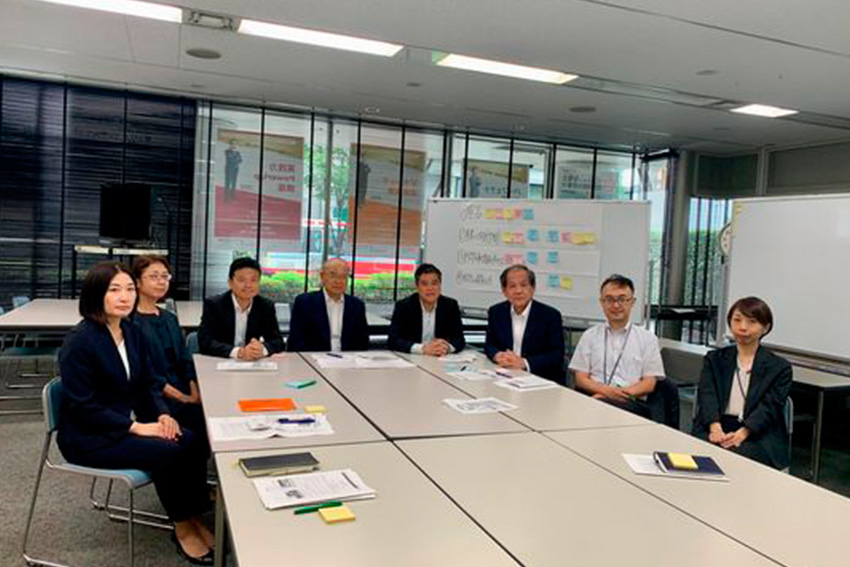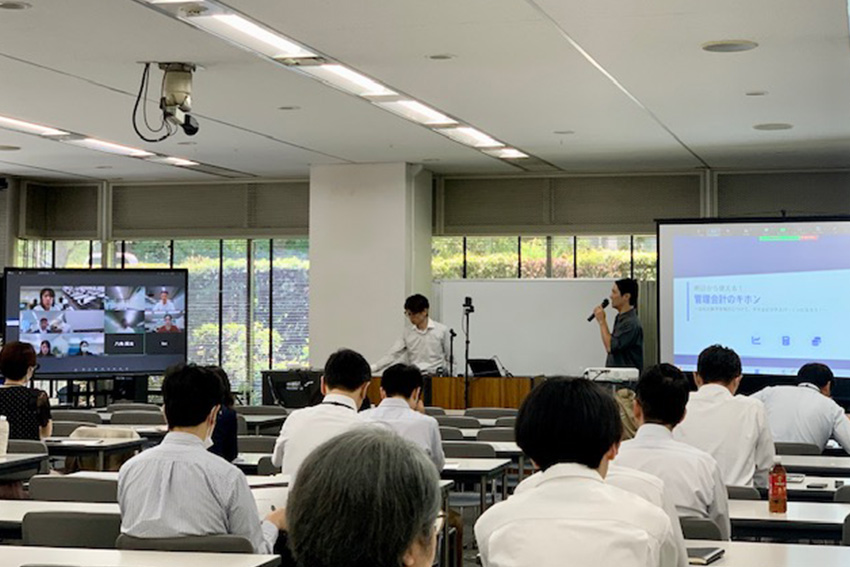To begin, could you please provide an overview of the current state of Japan’s legal and professional qualification sectors, especially considering the recent economic changes, new technologies, and innovations impacting the industry?
Thank you for the question. Certainly, the legal profession in Japan is experiencing significant transformation influenced by economic shifts and technological advancements. Over the past decade, we have seen a notable change in how licensed professionals—such as lawyers and judicial scriveners—operate. Traditionally, many practitioners ran independent offices on an individual basis. However, in recent years, there has been a clear trend toward these professionals integrating into larger corporate structures. This shift reflects broader societal changes and market demands.
In parallel, demographic changes are dramatically affecting the sector. Japan’s population is declining, particularly in rural areas where depopulation has created new challenges. For instance, issues like vacant homes have become a bigger problem. Additionally, with an aging population, there is an increased need for legal support around inheritance, elder care, and decision-making assistance when individuals lose capacity—areas where judicial scriveners and administrative scriveners are increasingly active.
The government is supporting these shifts through policies that encourage professionals to address local challenges. As a result, the roles of legal professionals are expanding beyond traditional boundaries to encompass broader social support functions.
Moreover, young people entering the workforce today are increasingly interested in roles connected to internet-based services and digital technologies—not only programming but also e-commerce, digital marketing, and other internet-related fields. This trend is particularly strong among those from humanities backgrounds, who may not traditionally pursue technical careers but are drawn to the digital economy.
Overall, the legal and related professional sectors in Japan are adapting to both demographic realities and technological innovation, fostering new career pathways and service models.
That is a fascinating overview. You also mentioned the government’s efforts to bring in specialized foreign workers, especially from South Asia and other regions, to address labor shortages in sectors like IT, Hotel/Tourism and Construction industries. How is your company involved in supporting or facilitating the integration and employment of these multinational professionals?
Indeed, Japan’s government recognizes the importance of attracting skilled foreign workers to sustain key industries. Our role in this ecosystem primarily involves providing administrative and legal support to both employers and employees throughout the complex visa and employment process.
For example, when foreign nationals require work visas, our licensed administrative scriveners assist with navigating the evolving regulations. Recently, new work-permit systems have been introduced, and we have developed specialized private certifications aimed at equipping administrative scriveners with the expertise necessary to manage foreign employment effectively. These are not national government qualifications but rather private licenses designed to ensure that practitioners stay current with frequent chamges of immigration and labor policies.
In addition, we offer similar certification programs for social insurance labor consultants—experts who handle HR and labor issues. Through these programs, we prepare professionals to better support foreign employees and employers alike.
Furthermore, we collaborate with organizations that run hotlines to support foreign workers who face workplace problems such as unpaid overtime or wage disputes. These hotlines operate in approximately 13 languages interpretation services to accommodate the diverse workforce. However, the challenge has been that some supervising organizations, which act as intermediaries, may not always connect workers with the right legal experts, limiting effective problem resolution.
To address this, we are developing educational programs targeted at the staff of these supervising bodies, training them to appropriately route inquiries to qualified specialists. Although this initiative is still in the planning phase, we believe it will improve support for foreign workers significantly.
We also recognize that many foreign employees are unfamiliar with aspects of daily life in Japan, such as how social insurance premiums affect their take-home pay or the specific rules about garbage disposal and community living. To bridge this gap, we are creating e-learning content to provide practical orientation before their arrival, helping newcomers adjust more smoothly to life and work in Japan.
Your comprehensive approach to foreign worker integration is impressive. Shifting to your core educational services, how does Tokyo Legal Mind incorporate technology to enhance learning, especially given the wide range of difficulty levels across different professional qualification exams?
This is indeed a complex challenge. The strategies we employ vary significantly depending on the exam difficulty and pass rates.
For exams with relatively higher pass rates—say, between 10 to 20 percent—we consider them more accessible, and our focus is on ensuring consistent study habits. For example, we encourage students to engage with daily 30-minute sessions using mobile applications that provide question banks and practice tests. Our goal here is continuity and regular engagement.
Conversely, for the most difficult exams, where pass rates drop below 10 percent—sometimes as low as 4 to 7 percent—the approach shifts. Because memorization demands are intense, we emphasize understanding over rote learning. Our instructors, most of whom have practical experience in the relevant legal fields, focus on teaching students how to think critically and apply legal principles in real-world contexts. This means students learn to reason through scenarios by recalling relevant statutes and frameworks, rather than merely memorizing facts.
This pedagogical method reduces the need for sheer memorization and instead cultivates comprehension and practical skills, which we believe leads to more sustainable success.
That emphasis on deep understanding over memorization is quite forward-thinking. In terms of technology used in your learning platforms, are there specific tools or innovations you employ to monitor student comprehension or to tailor teaching dynamically?
Yes, one particular innovation we have implemented is an interactive feedback system within our video lectures. As students watch lessons, they can press buttons labeled “Understand” or “Not Understand” at any point. Unlike the typical “Like” or “Dislike” metrics seen on platforms like YouTube, these buttons provide direct insight into comprehension.
When an excessive number of “Not Understand” responses are recorded, this data is fed back to instructors, enabling them to refine their teaching methods or provide additional support where needed.
For our hardest exams, we also offer students a choice of several instructors—usually four or five—to find the best fit for their learning style, which greatly improves engagement and success rates.

Headquarters building

Board meeting

Training session
Previous Next
Very interesting. As AI becomes more prevalent in education and professional training globally, how is your company integrating or planning to integrate AI technologies into your services?
At present, we are still in the early stages of experimenting with AI applications internally. One promising area is automating responses to student inquiries using AI chatbots trained on frequently asked questions. This helps us handle administrative and basic educational queries efficiently.
Additionally, we are developing AI-generated multiple-choice questions based on our textual materials, enabling us to create practice exams and mock tests with greater speed and variety.
However, AI is currently limited in addressing nuanced or poorly formulated student questions. It cannot yet replicate the human ability to interpret underlying concerns and guide learners thoughtfully.
We remain cautious about deploying AI for complex legal reasoning or interpretive tasks, where precision and contextual understanding are critical.
Thank you for that candid insight. Now, reflecting on your company’s history since its founding in 1979 with a focus on legal examination preparation, how has Tokyo Legal Mind evolved to address internationalization and today’s multifaceted challenges?
Tokyo Legal Mind began as a small operation supporting candidates preparing for the Japanese bar exam. Around 2000, we expanded into vocational training programs, growing steadily until 2009, when we reached about 70 schools nationwide.
During that period, especially after the 2008 financial crisis, the Japanese government shifted its focus from large public works projects toward investing in human capital development—reskilling unemployed workers and preparing them for new industries.
We adapted by offering a range of professional qualification training beyond the legal sector, including medical office administration and IT skills, responding to evolving market demands.
Internationally, we have begun forming partnerships with organizations involved in accounting and management certifications, such as CMA(Certified Management Accountant) institutions, though concrete collaborations remain in early stages.
One notable challenge is that certain sectors, like consulting, remain largely disconnected from formal national qualifications. Major firms like Accenture and McKinsey often hire consultants without official certifications like “the Small and Medium Enterprise Management Consultant license”, contrasting with the integration of licensed professionals in legal and accounting fields.
Going forward, we are eager to strengthen ties with international consulting bodies and explore partnerships that bridge professional expertise and global market needs.
Lastly, how would you succinctly describe Tokyo Legal Mind to your 75 million readers worldwide? What core mission or identity defines your company?
At our core, Tokyo Legal Mind exists to help individuals create their own “place” in society and organization—a space where they can grow and contribute meaningfully. We often use a sports analogy to illustrate this. When you start playing a sport, you do not immediately have a fixed position. Through practice and experience, you discover your strengths—whether as a forward, defender, or goalkeeper in soccer game—and carve out your role on the team.
Similarly, in life and work, people often enter the world passively, accepting predetermined roles. Our mission is to empower people to actively build their own paths and identify their unique contributions, regardless of age or background.
Even if someone doesn’t pass a particular qualification exam, the process of studying can deepen their understanding of areas like real estate, labor law, various administrative regulations or finance, opening doors to new roles or careers.
We envision growth not as a fixed destination but as an ongoing journey of development and belonging—a place to thrive at any stage of life.
Thank you, Mr. Sorimachi. That is a truly inspiring vision. As a final question, imagining yourself five years from now, what experiences do you hope to have gained as CEO, and what future do you envision for Tokyo Legal Mind?
Looking ahead, I believe professional work will be profoundly transformed by AI. We must prepare students not only to pass exams but to develop the mindset and ethical foundations essential for the professions they will enter.
Our mission is evolving toward cultivating not just knowledge but the philosophy and integrity behind professional practice. This human element—the ethical compass and commitment to societal good—will remain vital, even as technology changes how we work.
In five years, I hope Tokyo Legal Mind will stand at the forefront of this integration, offering education that blends advanced technology with deep human values, guiding learners to become capable, conscientious professionals ready for the challenges ahead.
For more information, visit their website at: https://www.lec-jp.com/shihou/

AloJapan.com